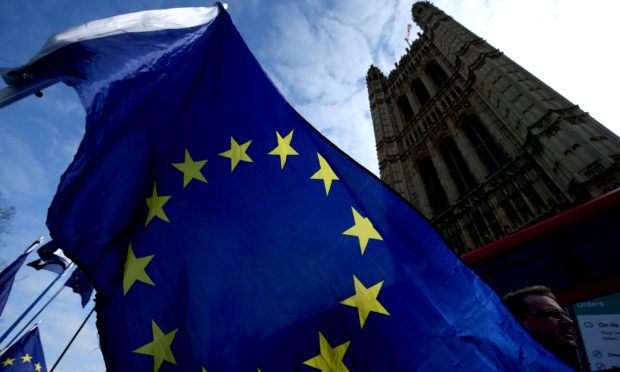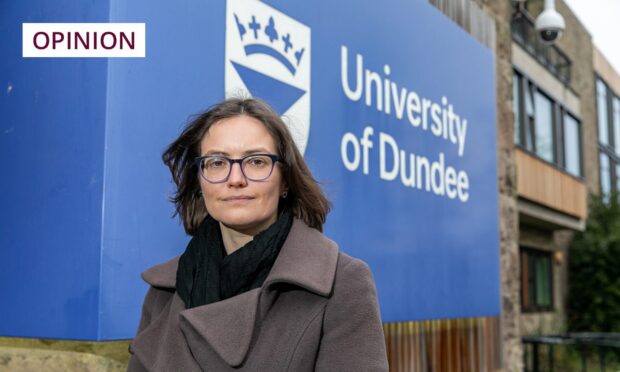Madam, – Like many people I have followed the current debate on Brexit in the media regarding the arguments around the consequences of a deal or no deal and the outcome of further negotiations.
To be honest, I have looked upon the arguments with a certain amount of dismay and apathy, and also because I did not think there would be any serious issues which could affect me and my family.
That is until now.
Whilst going into my local pharmacy I got chatting to them about Brexit.
What I was advised alarmed me.
Due to the possible No deal scenario, prices of pharmaceutical items coming from outwith the UK are now five times higher than they were a year ago.
I was also told things have never been as bad in regard to the supply and demand of pharmaceutical products.
At the moment the National Health Service in Scotland is apparently picking up the bill for these price rises.
But for how long? And if the situation gets worse, could it mean there could there be rationing of expensive prescription medication?
To be fair to the Scottish Government they are doing their best, and the scenario is a lot worse down south.
This situation is happening right now.
Politicians must take action to agree a deal for leaving the European Union and come to a consensus.
Otherwise we will soon have a major crisis on our hands regarding the supply of important pharmaceutical items and other products and services that people rely heavily on.
Steve Kerr,
Maryfield,
Dundee.
Dominated in a union of equals
Madam, – A clever tongue-in-cheek back-handed compliment was dished out to columnist Jenny Hjul from respondent Elspeth MacLachlan (Letters, April 17) for highlighting the activities of the Green Party as her then-excuse for indulging in her weekly bashing of the SNP (“Green Party wants to quit at all costs”, The Courier, April 10).
In her usual style Jenny castigated Patrick Harvey and his Greens for having the temerity to use his meagre Holyrood representation of six seats to hold the SNP to ransom for failing to push ahead with another independence bid.
This is a bit rich coming from a Conservative supporter who has kept very quiet on the subject of the deal done by the PM with the DUP at Westminster, a party with only 1.54% or a 10-seat representation in the House of Commons.
Not only that, there was a bribe of £1.5 billion handed over to seal the bargain.
In conclusion, I challenge Jenny to list all the advantages Scotland has enjoyed by being a member of a union of four nations where any national vote will be dominated by the opinion of the region with the largest population.
Brexit is a prime example as the peoples of both Scotland, and ironically enough, Northern Ireland who posted majority votes to remain in the EU are being overruled and let down by their neighbour in what is supposed to be a voluntary union of equals.
Allan MacDougall,
37 Forth Park,
Bridge of Allan.
A better deal for school health
Madam, – While there is an ongoing review of NHS Tayside director Drew Walker’s conduct, I hope there will also be a review of his record as manager of Tayside Public Health department and strategic decisions about funding made on his watch.
For example, around 2010, shortly before I retired from working in this department, there was a review of the School Health Service.
It quickly became clear how much both teachers and pupils valued this service, but because it had been starved of funding they now rarely saw their school nurse.
Teachers felt they were having to pick up and respond to more and more health issues and would have greatly appreciated more availability of their school nurse.
The irony was that over many years funding had been available to public health for work on specific health issues e.g. obesity, nutrition and smoking, but virtually none of this funding had found its way to the School Health Service despite the work they did on all of these issues.
I think there would have been a much better health outcome for children and young people if the School Health Service had been more valued and given a greater share of resources.
Julie Redman,
22 Craig Road,
Tayport.
Learning their own history
Madam, – Perhaps only in Scotland would a reader of a newspaper turn to the letters page and find one of their own countrymen complaining that their nation’s school children are taught their own history.
Scotland in Union’s, Allan Sutherland, (Letters, April 15) justifies such a complaint by describing the curriculum as, “quite sinister”, claiming it, “attempts to brainwash our schoolchildren”.
As part of the first intake at the newly built Longhaugh Primary School in 1960, my class learned about a Roman occupation, a king burning cakes, and another killed by an arrow piercing his eye.
Then there was yet another with six wives, succeeded by a virgin queen, whose navy defeated a Spanish armada.
We heard of factional wars, featuring roses and an, “English” civil war, followed by, “The Glorious Revolution”.
Would Mr Sutherland describe generations of Scottish primary schoolchildren being taught a neighbouring country’s history as education or brainwashing?
We then come to the daddy of them all, an aggressive takeover by the powers ruling that neighbour.
This was achieved by intimidation and the greasing of a number of palms, portrayed as an act of neighbourly altruism towards our “bankrupt” country.
More recently, Scots have been warned by thinly veiled threats of an English trade embargo being implemented should we choose independence.
In effect, the 1705 Aliens Act, brought in to bully Scotland into submission, rebooted for the 21st Century.
Plus ca change….
If this so-called union demands future generations of our children continue to be denied their own history, in favour of a soft focus fabrication wrapped in a Union Jack, the sooner it ends the better.
Ken Clark,
15 Thorter Way,
Dundee.
Death and the meaning of life
Madam, – Regarding the article “Life instilled into pig brain hours after death” (The Courier, April 18).
This statement appears non sequitur inasmuch as life, as generally understood, cannot be instilled after death – death being the subject under investigation.
Cellular brain death is usually considered to be swift and irreversible.
The term irreversible has connotations to the scientific notion of time, an unproven and arcane phenomenon.
Perhaps consciousness is not personal or individual, or even in the brain, but a space-time phenomenon which withdraws at death and connects to create other sentient life forms.
Kenneth Miln,
Union Street,
Monifieth.










